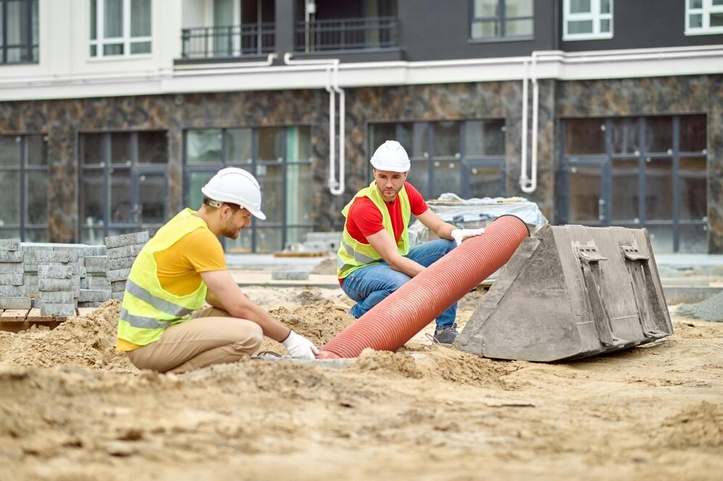Introduction
Rainfall is a natural force that, when not properly managed, can pose significant challenges to urban and rural environments alike. Drainage design specialist emerge as the architects of resilience, tasked with creating systems that navigate the intricate balance between water management and sustainable development. This article delves into the expertise of these specialists, unraveling the complexities of their craft.
The Expertise of a Drainage Design Specialist
-
Hydrological Mastery: At the core of a drainage design specialist's expertise lies a deep understanding of hydrology—the science of water. Specialists analyze rainfall patterns, soil types, and catchment areas to decipher the flow of water in a given environment. This mastery allows them to predict and plan for potential challenges related to water management.
-
Advanced Modeling Techniques: Leveraging sophisticated modeling techniques, drainage design specialists simulate various scenarios to understand how water behaves in different conditions. Hydraulic and hydrological models enable them to visualize the potential impacts of rainfall and design systems that efficiently mitigate risks.
-
Topographical Analysis: A drainage design specialist is adept at reading the landscape. Through topographical analysis, they identify natural drainage paths, low-lying areas prone to flooding, and critical points where water management interventions are required.
-
Innovative Solutions: Specialists are at the forefront of adopting innovative drainage solutions. This includes the integration of green infrastructure, such as permeable pavements and rain gardens, to manage water in an environmentally sustainable manner.
Challenges Faced by Drainage Design Specialists
-
Urbanization Pressures: The relentless expansion of urban areas often results in increased impervious surfaces, disrupting natural drainage patterns. Specialists must navigate the challenges posed by urbanization to create effective water management systems.
-
Climate Change Uncertainties: The unpredictable nature of climate change introduces an additional layer of complexity. Specialists must design systems that can adapt to changing weather patterns, including more intense rainfall and rising temperatures.
-
Community Engagement and Education: Convincing communities of the importance of proactive water management can be challenging. Drainage design specialists must engage with the public, explaining the risks and benefits of their interventions and fostering community participation.
Methodologies Employed by Drainage Design Specialists
-
Holistic Site Assessment: Specialists conduct thorough site assessments, considering factors such as land use, soil types, and existing infrastructure. This holistic approach ensures that drainage designs align with the specific needs and challenges of a given location.
-
Integration of Green Infrastructure: Recognizing the importance of sustainability, specialists incorporate green infrastructure elements into their designs. This includes permeable surfaces, vegetated swales, and bio-retention basins, which enhance water management while promoting ecological health.
-
Climate-Adaptive Design: In response to the uncertainties of climate change, drainage design specialists employ climate-adaptive design strategies. This involves anticipating future climate scenarios and designing systems that can withstand and adapt to changing conditions.
-
Collaboration with Other Disciplines: Effective drainage design often requires collaboration with professionals from various disciplines, such as civil engineering, urban planning, and environmental science. This interdisciplinary approach ensures that drainage systems are comprehensive and resilient.
Benefits of Drainage Design Specialist Expertise
-
Reduced Flooding Risks: By employing their expertise, drainage design specialists significantly reduce the risk of flooding in vulnerable areas, protecting communities and infrastructure from water-related disasters.
-
Preservation of Ecosystems: The careful consideration of natural drainage patterns and the integration of green infrastructure contribute to the preservation of local ecosystems. Specialists strive to design systems that work harmoniously with the environment.
-
Enhanced Infrastructure Longevity: Well-designed drainage systems not only protect against flooding but also contribute to the longevity of infrastructure. By preventing water-related damage, specialists play a vital role in sustaining roads, buildings, and other critical assets.
-
Community Resilience: Through engagement and education, drainage design specialists empower communities to become more resilient in the face of water-related challenges. This resilience is built on a foundation of understanding and proactive water management.
Conclusion
The expertise of a drainage design specialist is instrumental in crafting resilient solutions for managing rainfall and water flow. From hydrological mastery to the integration of innovative and sustainable practices, these specialists navigate challenges with a commitment to creating water-resilient environments. As communities grapple with the impacts of climate change and urbanization, the role of drainage design specialists becomes increasingly vital in shaping a future where water is managed with foresight, sustainability, and resilience.


No comments yet